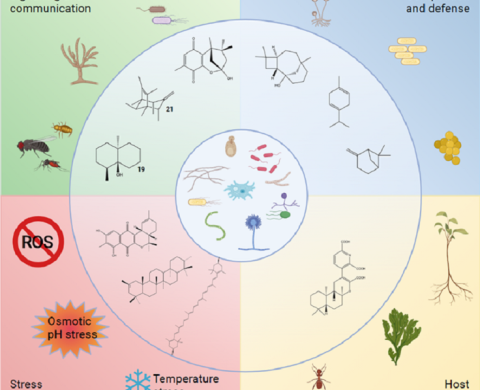Unravelling the ecological role of bacterial terpenes

The chemical analyses and sequencing of microbial genomes have only recently revealed that genes encoding for terpenes are widespread in bacteria. To date the ecological conditions under which bacterial genes encoding for terpenes are expressed and the biological function of bacterial terpenes remain largely unknown.
The overall objectives of this project are: to reveal the ecological function of bacterial terpenes, to discover their importance in shaping the rhizosphere microbiome and to underline the role of terpenes in microbe-microbe and plant-microbe interactions. Most terpenes volatilize easily, hence, they can travel fast over long distances through both the liquid and gaseous phases of the soil and can be very important to the belowground plant-microbe interactions. Using maize (Zea mayz) as a model plant and a set of state-of-the-art methods, we will take several research steps forward which will lead to a novel understanding of bacterial terpenes and the role of terpene-mediated interactions for plant growth and health.
Experts
-

-
Saskia Gerards
Research assistant , Microbial Ecology
-
Hans Zweers
Technician , Microbial Ecology
